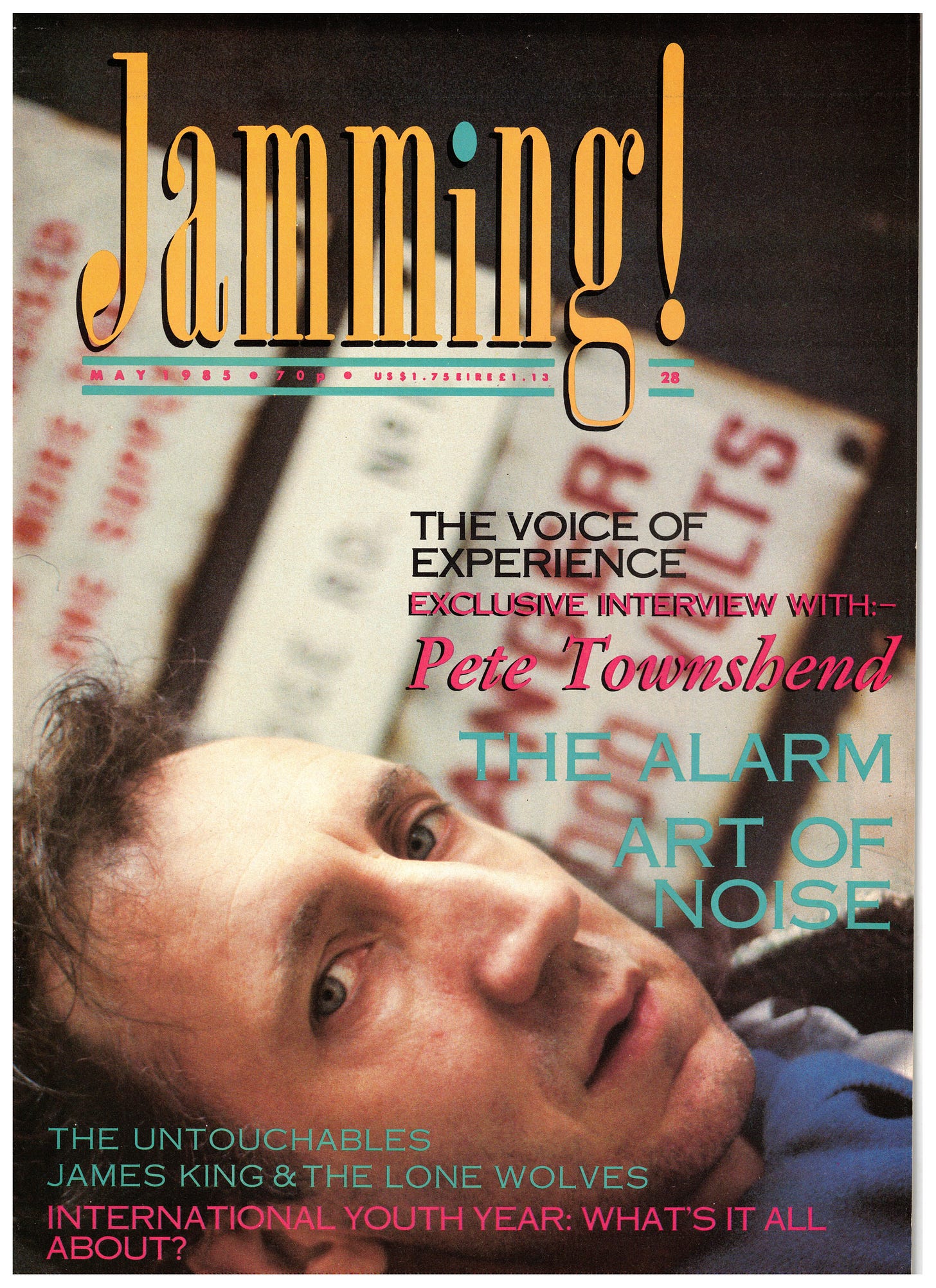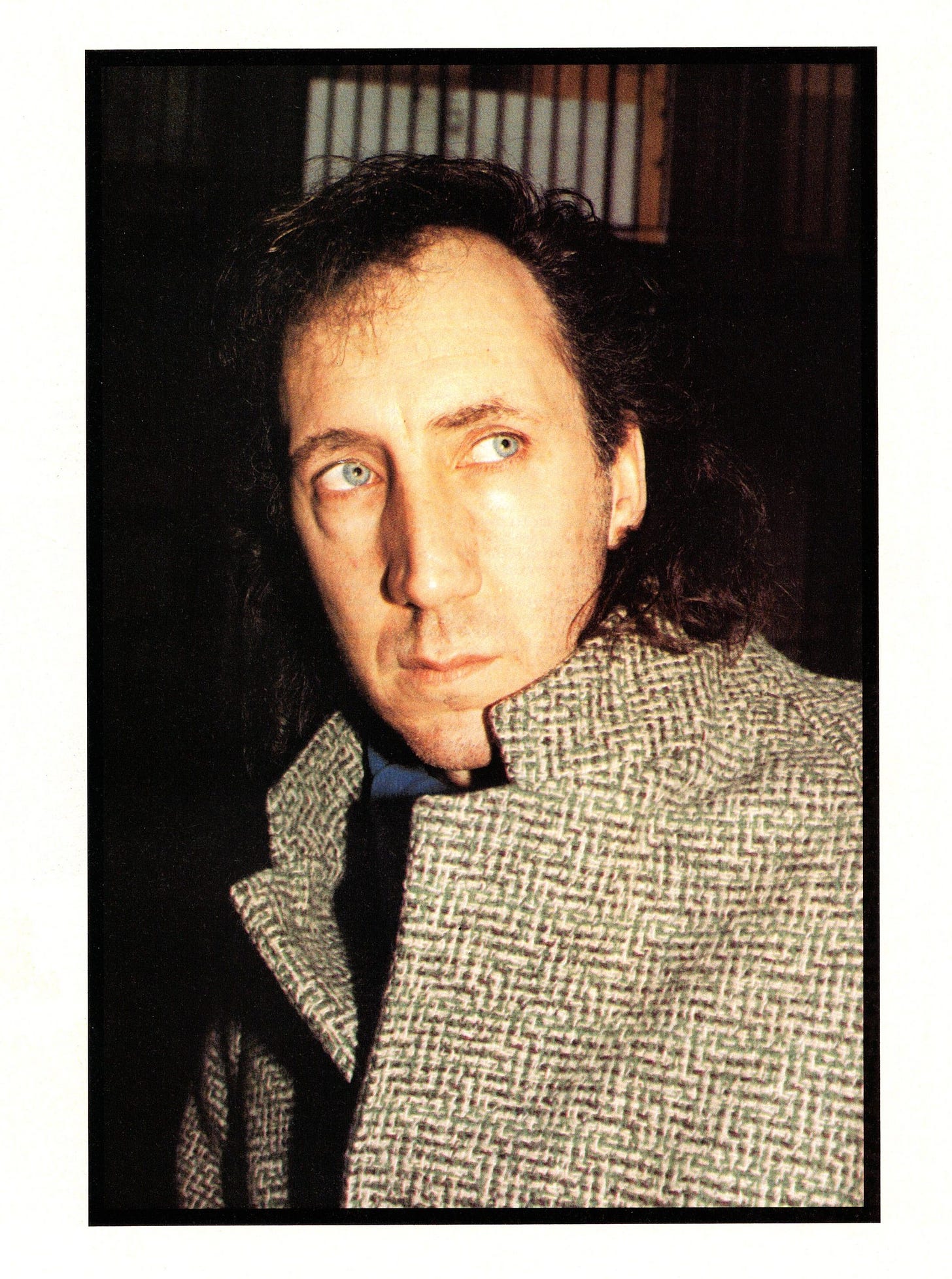"It was funny to have a record at No. 4 that was about wanking off."
Part 1 of my epic Pete Townshend interview from 1985.
Certain interview scenarios you remember forever. Like the time in 1978, when I was but 14 and just getting going with my fanzine Jamming!, and we magically bagged an interview with my rock idol, Pete Townshend. Despite showing up to his Eel Pie office mob-handed, an hour late, we still got the best part of an intimate hour with him, and I never forgot him leaning forward in his rocking chair to graciously and patiently answer questions he had no doubt been asked a thousand times before. (That interview was reposted over two parts on Wordsmith, here and here.)
But then, once you’ve done enough interviews, there are certain scenarios you struggle to remember. Like the time in early 1985, when I interviewed Pete Townshend again.
Yet there is no logical reason for this to be among the more foggy memories. Although I had rapidly fallen out of love with the post-Keith Who, my love for the real Who had not dissipated. Nor had my respect and admiration weakened much for Pete himself; I harboured then and still do now considerable warmth for the two solo albums he released during those years, Empty Glass and, though to a lesser extent, All The Best Cowboys Have Chinese Eyes.
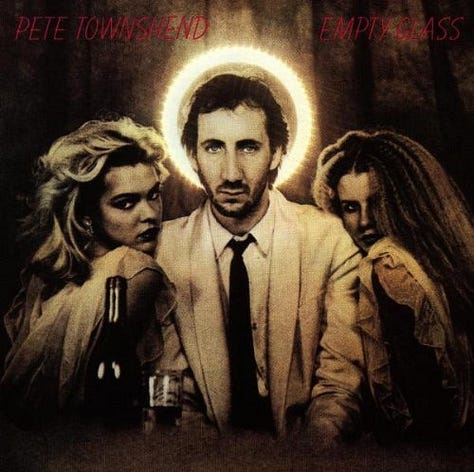
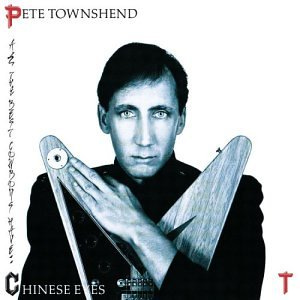
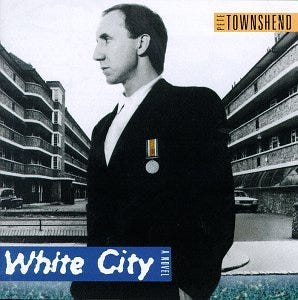
Had I not felt this way, I wouldn’t have worked so hard to secure this particular interview, presumably on the pretext of talking to Pete about his new day job, as an Associate Editor with Faber & Faber. Nor would I have sought to pin him down far past the allotted hour, doubling it into almost two hours of questioning that naturally expanded into The Who’s professional career and Pete’s recent heavily publicised personal unraveling with a heroin addiction. Nor would I then have put him on the cover of Jamming! at a time when, coming to the end of a lengthy lull between The Who’s break-up and his re-emergence as a solo artist with White City much later that year, doing was not going to sell us any more copies than our one other option from that issue, The Alarm.
Could the fogginess of memory, then, be due to the dark cover image we ultimately chose? As with Jerry Dammers a few months earlier, photographer Coneyl Jay had battled against restrictive outdoor elements and, no doubt nervous of directing a rock star into London traffic, ultimately portrayed Townshend up against a Soho doorway. And if that brings back images of the song ‘Who Are You,’ well you aren’t the only one. “I could quite easily settle down here for the night,” Pete said as we reconnoitered the alleyways around the back of his Broadwick Street studios, which presumably was where the interview took place. He did not appear to be joking.
Certainly, it was a difficult moment in music. At Jamming!, we’d removed the tagline “A New Optimism for the 80s” from the masthead a while back and with this new front cover, did away with its replacement, “Breaking Down The Barriers,” too; we offered no new catchphrase in its place. The initial excitement and exuberance of early 80s synth-pop - which temporarily brought everyone into the fold - had run its course; I have a book on the subject, Mad World, that makes a highly valid claim that you could draw a line under it with the recording the previous December of the Band Aid single, ‘Do They Know It’s Christmas?’
There was little by way of uplifting guitar music hitting the charts either: The Housemartins were still a year away from doing so, and I consciously omit the widely misunderstood, mostly euphoric music of The Smiths here because they were deep in Meat Is Murder and ‘How Soon Is Now?’ mode. While in many ways, the indie scene had never been healthier – fanzines were flourishing and there was a solid support structure among bands operating on the far left of the commercial and political dial -it was also a very gothic, angular, and spiky scene, both in terms of musical and visual style: the likes of New Model Army, Cocteau Twins, Xmal Deutschland and Red Guitars were among the only acts to challenge the big indie trifecta of The Smiths, Depeche Mode and New Order for indie-chart-topping status.
Politically, it was an especially dour time. Thatcher had emerged victorious from her battle with the miners and it was evident that she and her Tory party faithful’s brand of harsh conservatism was only going to dig deeper and extract whatever spoils could still be gouged out of a weakened working class; any hope of additional forward progress in terms of societal inclusiveness and diversity was similarly being threatened by a Government that preached parochial family values, with all the antiquated, Imperialist gender (and racial) stereotypes Pete would rightly rail against in our interview. Meanwhile, Reagan(ism) was as rampant in the States as Thatcher(ism) in the UK, and we the people truly feared that the special relationship between these two countries’ respective leaders would actually lead us into World War III, a nuclear war to be fought to Armageddon on European soil.
As such, it’s perhaps not surprising that my questioning appears, on paper at least, somewhat harsh – as if I’m blaming Pete for all the ills of the world, including his recent decision to address the Young Tories at the Conservative party conference. But having listened to the (second) one-hour cassette that survived the ongoing years, the conversation itself was perfectly pleasant. Pete has always liked a good debate, and while he rejected several of my suppositions, he clearly enjoyed being on the receiving end of a good Devil’s Advocate question.
And this is the strangest thing about my lack of a clear visual recollection. I have often lamented that the 14-year-old me was too nervous, or at least too polite, to throw anything but soft balls at my idol back in 1978. Six and a half years on, though I was still but 20, I was a seasoned veteran, and I appear to have made up for any earlier missed opportunities. Reading back over this transcript, I am equal parts stunned and surprised by just how damn good it is, even allowing the rich firmament of Townshend interviews over the decades, and my only lament now is that I have not been more clinically aware of its quality for the best part of the last 30 years. With the publication of the full transcript, which runs over 10,000 words in length yet appears to have little wasted space and minimal unnecessary tangents, I am finally making amends.
“Everybody talks about female stereotypes - we’ve just started to attend to the fact that since the Victorian times the worst thing that's happened in this country isn't female stereotyping, it's male stereotyping that has given the feminist something to bite back against.”
But for all that I can not picture the interview itself, there remains one vivid memory of its aftermath. Later down the line, another journalist talking to Pete, by this point in promotion mode for White City, raised a reference to his quote to me around ‘Pictures of Lily.’ - namely the headline for this post, “I just thought it was funny to have a record at no. 4 that was about wanking off.”
“Well, that interviewer certainly looked like he needed a good wank,” said Townshend, or words damn near enough.1 Coming from the man who also wrote ‘Mary Anne With The Shaky Hand,’ along with a slew of other adolescent double entendres, I have long carried the comment as a compliment from someone who recognized a fellow wanker when he met one. And to this day, Pete Townshend remains my lone rock idol.
The interview that follows is for the benefit of paid subscribers to Tony Fletcher, Wordsmith, which is 100% reader supported, with no ads, influencers, sponsorship or other outside financial support. Paid subscriptions are less than $1 a month and additionally provide access to the full archives, as well as the monthly Crossed Channels podcast.



